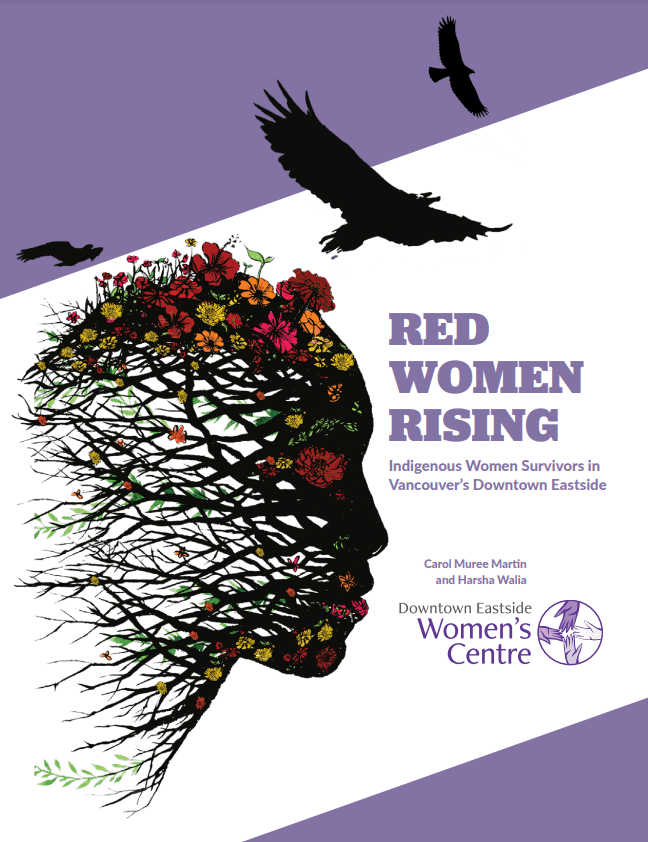41 search results
for
Indigenous issues in policing and justice
Recommendations to end criminalization of Indigenous women in the DTES
Access to justice
Recommendation 167: Implement existing recommendations in Justice Reform for British Columbia by Community Legal Assistance Society, Pivot Legal Society, West Coast LEAF, and B.C. Civil Liberties Association.-
Category and theme:
- Access to justice ,
- Alternative solutions ,
- Courts ,
- Decolonization and Indigenous rights ,
- Housing and homelessness ,
- Human rights system ,
- Indigenous issues in policing and justice ,
- International human rights ,
- Policing ,
- Policing and the criminal justice system ,
- Poverty ,
- Poverty and economic inequality ,
- Public education and reconciliation ,
- Public services
Groups affected:
Location of recommendation:
Recommendations to end criminalization of Indigenous women in the DTES
Correctional facilities
Recommendation 168: Full decarceration of Indigenous women in the federal and provincial corrections system. No Indigenous woman should ever be sentenced into a colonial system.-
Category and theme:
Audience:
Groups affected:
Location of recommendation:
Recommendations to end criminalization of Indigenous women in the DTES
Correctional facilities
Recommendation 169: Increased resourcing, capacity, and funding for section 81 Healing Lodges. Indigenous nations and urban Indigenous organizations must be able to operate Healing Lodges on a long-term basis and with full wrap-around supports. Change the policy of not allowing women with maximum-security classifications to be at CSC-operated healing lodges and increase access to all healing lodges.-
Category and theme:
Audience:
Groups affected:
Location of recommendation:
Recommendations to end criminalization of Indigenous women in the DTES
Correctional facilities
Recommendation 170: Increased resources, capacity, and funding for section 84 agreements so that Indigenous nations are compensated and can provide full support for Indigenous women seeking section 84 releases. Indigenous communities and organizations should exercise control and self-determination in the development and implementation of reintegration plans.-
Category and theme:
Audience:
Groups affected:
Location of recommendation:
Recommendations to end criminalization of Indigenous women in the DTES
Correctional facilities
Recommendation 171: Start all Indigenous women prisoners at a minimum-security level and remove the requirement to automatically incarcerate Indigenous women in a maximum security facility for the first two years of a murder sentence.-
Category and theme:
Audience:
Groups affected:
Location of recommendation:
Recommendations to end criminalization of Indigenous women in the DTES
Correctional facilities
Recommendation 172: End the current classification scale and reassess all Indigenous women currently classified at the maximum-security level using a gender and culturally-responsive classification tool.-
Category and theme:
Audience:
Groups affected:
Location of recommendation:
Recommendations to end criminalization of Indigenous women in the DTES
Correctional facilities
Recommendation 173: The test for security classification under s. 18 of the Corrections and Conditional Release Regulations should be amended to eliminate institutional adjustment as criteria for a higher classification level.-
Category and theme:
Audience:
Groups affected:
Location of recommendation:
Recommendations to end criminalization of Indigenous women in the DTES
Correctional facilities
Recommendation 174: End the placement of Indigenous women in solitary confinement in all prisons, and establish an independent external review of all Indigenous women in segregation placements.-
Category and theme:
Audience:
Groups affected:
Location of recommendation:
Recommendations to end criminalization of Indigenous women in the DTES
Correctional facilities
Recommendation 175: Increase supports for Indigenous women on conditional release, particularly through income assistance, employment, counselling, and child care. Permit conditional release options that facilitate Indigenous women to be housed with their children.-
Category and theme:
Audience:
Groups affected:
Location of recommendation:
Recommendations to end criminalization of Indigenous women in the DTES
Correctional facilities
Recommendation 176: All day-to-day programs and services at remand, provincial, and federal facilities must be accessible, timely, and long term with the goal of decarceration and successful reintegration. Access must be unconditional, not contingent on classification, and not withdrawn as a punitive or disciplinary measure. Guaranteed programs and services must include:- Independent prison legal services.
- Independent healthcare in accordance with the U.N. Mandela rules including 24/7 appropriate healthcare; mental health counselling; access to gender-affirming surgery; detox on demand; heroin-assisted and injectable hydromorphone treatment; and safe needle exchange and tattooing program.
- Culturally appropriate and non-punitive healing programs that understand physical, mental, spiritual, and sexual traumas as intergenerational collective traumas caused by colonization.
- Free phone calls.
- Nutritious food.
- Library, reading materials, and computer literacy.
- Increased visitation, including increased hours, more opportunities for physical contact, and decreased security checks for visitors.
- Access to meaningful employment and higher prisoner pay.
- Support for release planning.
-
Category and theme:
- Accessibility ,
- Accessible services and technology ,
- Corrections ,
- Culture and language ,
- Decolonization and Indigenous rights ,
- Education and employment ,
- Food insecurity ,
- Health ,
- Health, wellness and services ,
- Income insecurity and benefits ,
- Indigenous issues in policing and justice ,
- Policing and the criminal justice system ,
- Poverty and economic inequality ,
- Substance use
Audience:
Groups affected:
Location of recommendation:
